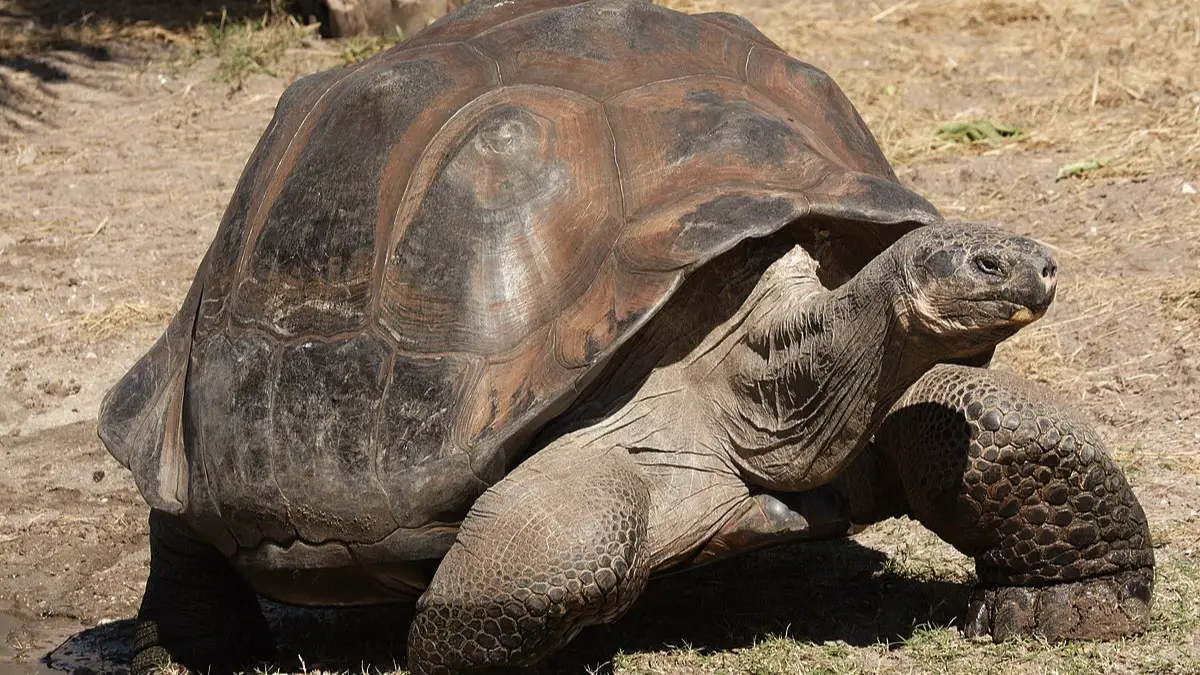Tortoise Life Expectancy: How Long Does A Tortoise Live?
Tortoises have long piqued our interest as pets due to their intriguing appearance and remarkable longevity. Responsible tortoise owners must understand the average life expectancy of these amazing creatures to keep their shelled friend happy and healthy.
So, how long does a tortoise live? Tortoises can live for several decades, while some species can live for centuries. Tortoise life expectancy varies depending on several factors, including species, size, habitat, diet, and genetics.
This article will provide valuable insights to ensure your tortoise thrives throughout its remarkable journey. We will delve into the factors influencing its lifespan, explore the longevity of popular tortoise species and learn how to provide optimal care.
Life Expectancy Of Popular Tortoise Species
Contents
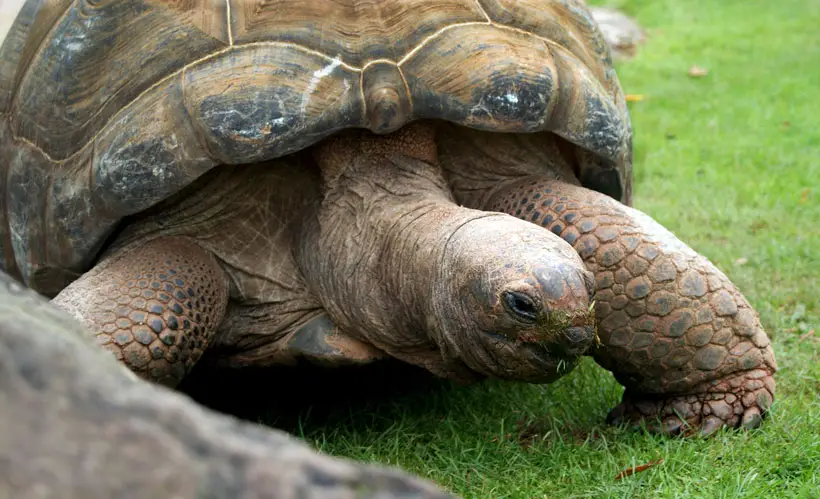
Here are the life spans of various popular tortoise species. Please note that these life expectancies are approximate and can vary depending on various factors such as habitat, diet, and overall care provided.
| Tortoise Species | Life Expectancy |
|---|---|
| Galapagos Tortoise | Over 100 years |
| Aldabra Tortoise | Over 150 years |
| Sulcata Tortoise | 70-100 years |
| Russian Tortoise | 40-60 years |
| Greek Tortoise | 50-80 years |
| Leopard Tortoise | 50-80 years |
| Hermann’s Tortoise | 50-100 years |
| Marginated Tortoise | 40-60 years |
| Indian Star Tortoise | 30-40 years |
| Red-footed Tortoise | 30-50 years |
How Long Does a Tortoise Live?
Tortoises are renowned for their impressive longevity, often living for several decades and even surpassing a century in some cases.
- On average, a tortoise will live up to 250 years. This is especially true for species such as giant tortoises.
- Jonathan, a Seychelles giant tortoise, is the world’s oldest known living land animal. Jonathan was born around 1832 on the South Atlantic island of St. Helena. He is believed to be over 190 years old at the time of writing.
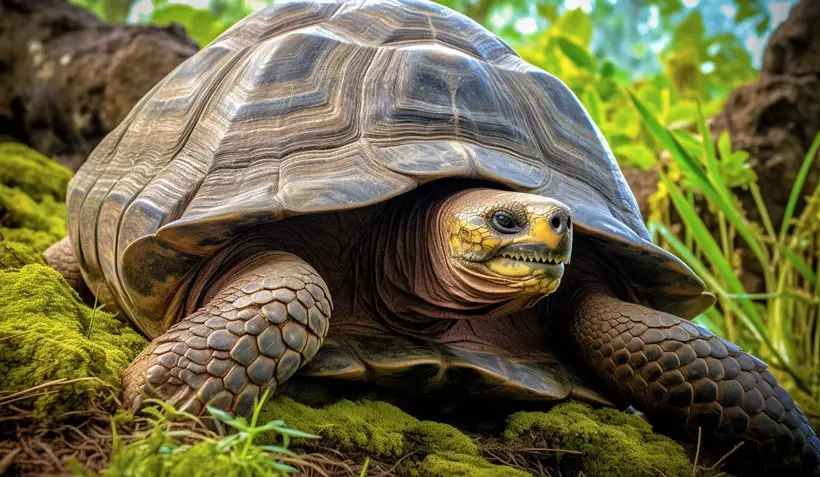
Jonathan’s longevity can be attributed to several factors, including his species (Aldabra giant tortoise) and the island’s favorable environmental conditions. He has become an icon of longevity and a beloved resident of St. Helena, winning the hearts of locals and visitors.
- Adwaita, another remarkable tortoise, deserves special mention for his exceptionally long lifespan. Adwaita was an Aldabra giant tortoise who lived at the Alipore Zoological Gardens in Kolkata, India.
The zoo reportedly acquired him in the early 1870s, and died in 2006, making him approximately 255 years old. While his exact age is unknown, Adwaita’s longevity demonstrates the potential lifespan of tortoises as well as the importance of proper care.
These extraordinary examples of tortoise longevity show how these animals can be cherished companions for generations. It also emphasizes the importance of providing suitable habitats, balanced diets, and appropriate healthcare to ensure their well-being and extend their lifespans.
Understanding the typical lifespan of different tortoise species allows us to appreciate the commitment required when welcoming one into our lives. Here is a video of a 104-year-old tortoise.
How Do Tortoises Live So Long?
While various factors contribute to their extended lifespans, several key factors significantly influence their longevity.
Slow Metabolism and Growth
Tortoises have a remarkably slow metabolic rate when compared to many other animals. Their slow metabolism allows them to conserve energy and maintain bodily functions at a slower rate.
This slower metabolic rate contributes to their slow growth, ensuring their bodies age slower than faster-growing animals.
Species-Specific Traits
The life expectancy of various tortoise species varies. The Galapagos tortoise (Geochelone nigra) and Aldabra tortoise (Aldabrachelys gigantea), for example, are known for their exceptional longevity. These massive tortoises can live for over a century and have even been reported to live for 150 years or more.
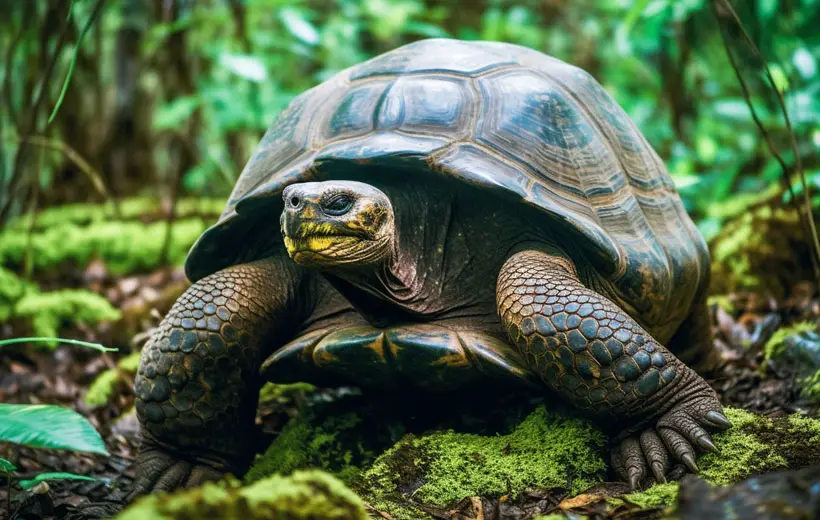
Limited Predation and Disease
Unlike many other animals, tortoises have few natural predators in their environments. Their protective shells and slow movement make them less vulnerable to predation.
Tortoises have developed strong immune systems, and their low body temperatures may make them less susceptible to certain diseases.
Delayed Reproduction
Tortoises frequently exhibit delayed sexual maturity, with some species taking several years to reach reproductive age. This delayed reproduction allows them to devote more energy to growth, development, and overall health before investing in reproductive efforts.
DNA or Genetics
Some individuals, such as giant tortoises, may inherit genes that promote longevity. And others may be more susceptible to health issues or have a shorter lifespan due to their genetic makeup. However, compared to other animals, the influence of genetics on tortoise lifespan is less well understood.
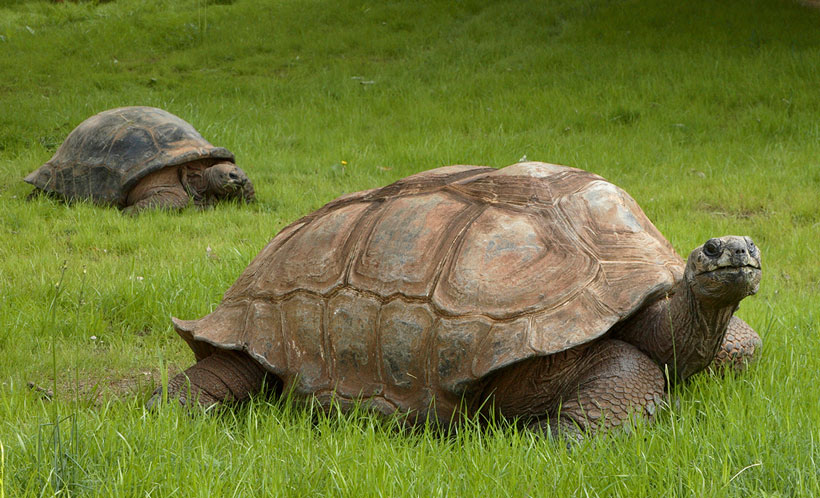
Location
Factors such as climate, availability of food, and exposure to natural hazards can vary significantly based on the region. Tortoises in regions with favorable environmental conditions and fewer natural threats may experience longer lifespans than those in less favorable areas.
For example, species that live in remote locations, such as the Galapagos Islands, will be less affected by human pollution and interference. This enables them to reach their full potential.
Size
While there is not enough research, there is a correlation between an animal’s size and lifespan, which is true for tortoises. The largest specimens of these reptiles have the longest lives. As a result, it is unlikely that a small pet tortoise will live for centuries.
Nonetheless, factors such as a good habitat and access to abundant food also weigh in here. For example, a large tortoise will not thrive or live longer if kept in a filthy environment teeming with bacteria.
How To Help Your Tortoise Live Longer?
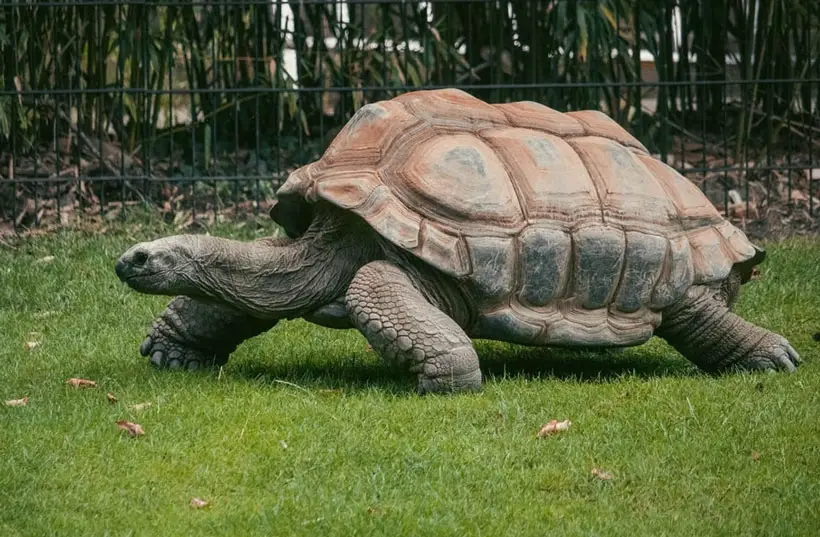
As a responsible tortoise owner, you play a vital role in ensuring the well-being and longevity of your pet. Here are some essential tips on how to help your tortoise live a long and healthy life:
Enclosure and Habitat
- Ensure your tortoise has a spacious and secure enclosure allowing them to move around freely.
- Additionally, include various hiding spots, basking areas, and natural substrates to create a stimulating and comfortable environment.
- Protecting the enclosure from extreme temperatures, drafts, and potential predators is important.
- Regular cleaning of the enclosure is also necessary to maintain proper hygiene and prevent the buildup of bacteria or parasites.
Diet and Nutrition
- Provide a diet suitable for your tortoise’s species, including leafy greens, vegetables, and occasional fruits.
- To ensure optimal nutrition, it is critical to provide species-specific dietary requirements.
- Their diet should include calcium supplements to promote healthy shell growth and prevent metabolic bone disease.
- Avoid feeding your tortoise foods that are toxic or harmful to their health, such as processed or high-fat foods.
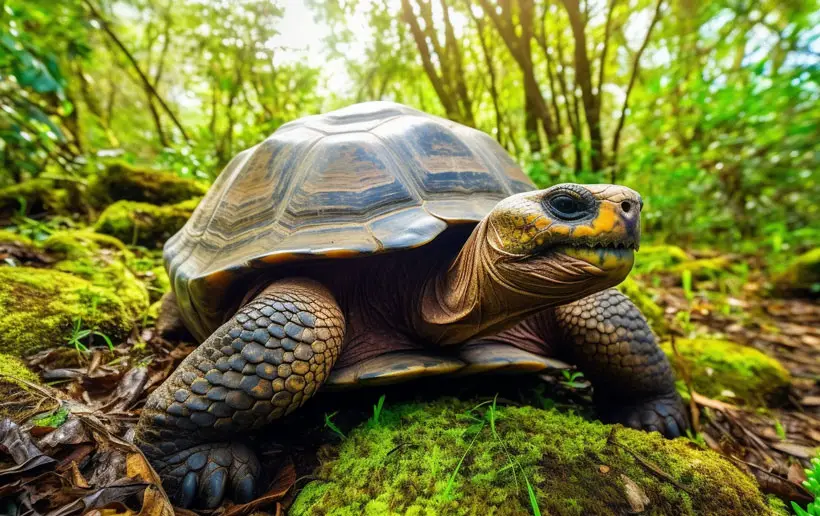
Veterinary Care
- Schedule annual or monthly check-ups with a reptile veterinarian familiar with tortoise care. These tests can aid in the early detection of health issues and in providing appropriate treatment.
- Follow recommended vaccination schedules to protect your tortoise from common diseases.
- Seek veterinary help immediately if you notice changes in your tortoise’s appetite, behavior, or physical appearance.
- Regular parasite inspections are also necessary, and appropriate treatment should be sought if necessary.
Exercise and Stimulation
- Create an enriching environment within their enclosure by including obstacles, ramps, and toys that encourage physical activity and mental stimulation.
- Likewise, supervised outdoor time in a safe and secure environment can provide additional exercise and exposure to natural sunlight. And this is important for their overall well-being.
Environmental Factors
- Maintaining proper temperature, humidity, and lighting within the tortoise’s enclosure is essential for an optimal environment.
- Investigate the specific requirements of your tortoise’s species and try to replicate their natural habitat as closely as possible.
- It is critical to provide a suitable UVB light source to ensure proper vitamin D3 synthesis, which is necessary for calcium absorption and overall health.
- Reduce stress in your tortoise’s environment by avoiding sudden temperature changes or handling.
Education and Research
- It is critical to constantly educate yourself about your tortoise’s species-specific needs, behavior, and health considerations.
- Keep current on the latest research and advancements in tortoise care to provide the best possible care for your pet.
- Joining tortoise communities and seeking advice from experienced tortoise owners and experts can also be beneficial. It ensures your tortoise’s well-being and longevity.
FAQs
Here are other related questions about tortoise life expectancy.
Several factors can decrease a tortoise’s lifespan, including;
- Inadequate diet and nutrition
- Improper habitat conditions
- Lack of veterinary care
- A stressful environment
- Insufficient exercise and stimulation
- Exposure to harmful substances
- Neglecting hygiene and cleanliness
No. Tortoises do not have clear markers like tree rings, so determining their exact age can be difficult. However, some general indicators can provide a rough estimate of their age.
These include their size (older tortoises tend to be larger), the condition of their shell (older tortoises may have more wear and less defined scutes) and observing growth rings on the scutes.
Tortoises in the wild can face various challenges, such as predators, habitat loss, and limited resources. In well-managed captivity, where their needs are met, tortoises may have a higher chance of living longer than those in the wild.
Conclusion
Understanding the lifespan of tortoises is critical for providing them with the care they require to live long, healthy lives. While each species has its average lifespan, some factors can increase or decrease their longevity. You can significantly contribute to your pet tortoise’s well-being and lifespan.
It’s important to remember that tortoises are long-term investments, as they can live for decades or centuries. Educating yourself about their specific needs, consulting experts, and continuously learning about their care requirements are all necessary for being a responsible and knowledgeable owner.

